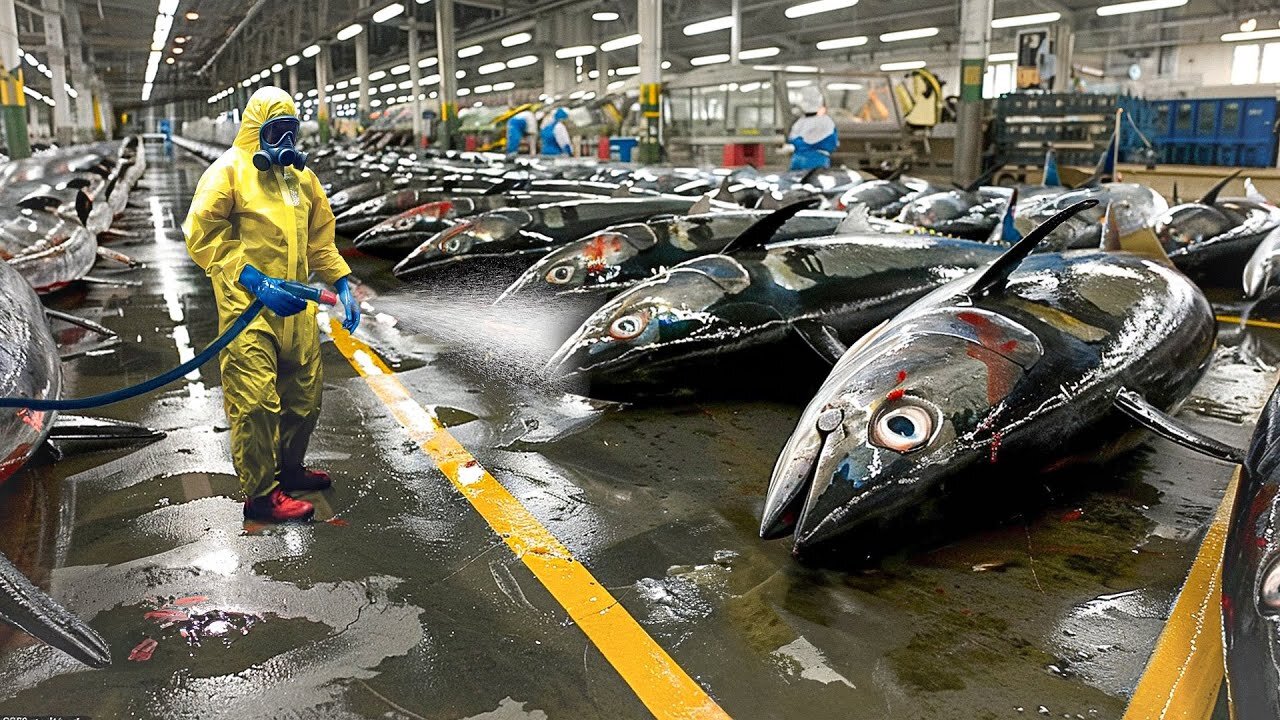Premium Only Content

Aquaculture Cruelty: Ethical Concerns in Fish Farming
Aquaculture, the practice of farming aquatic organisms like fish, shellfish, and seaweed, has grown rapidly as a solution to meet the rising demand for seafood. However, aquaculture cruelty is a significant concern that highlights the ethical and welfare issues associated with this industry. Fish and other aquatic animals in aquaculture systems are often subjected to overcrowded conditions, poor water quality, and inadequate veterinary care, leading to high stress levels, disease, and suffering.
One of the primary issues of aquaculture cruelty is the dense stocking densities in fish farms. These crowded environments restrict the natural behaviors of fish, causing stress and increasing the spread of diseases. In many instances, fish are kept in cages or tanks with little room to move, leading to physical injuries and poor health. Additionally, the quality of water in these systems can deteriorate rapidly, further exacerbating the stress and health issues faced by the animals.
Another aspect of aquaculture cruelty involves the handling and transport of fish. During these processes, fish are often subjected to rough handling, leading to injuries and increased mortality rates. The lack of regulations and oversight in many regions means that fish may not receive proper care or humane treatment throughout their lives.
Moreover, the methods used for harvesting fish can be particularly inhumane. Practices such as stunning, asphyxiation, or live gutting are commonly employed, causing prolonged suffering before death. This raises significant ethical concerns about the welfare of fish and other aquatic animals in the industry.
Furthermore, the use of antibiotics and chemicals to control diseases in aquaculture can have detrimental effects on both the environment and the health of the animals. Overuse of these substances can lead to antibiotic resistance, posing a risk to both animal and human health.
Addressing aquaculture cruelty requires stricter regulations, better welfare standards, and increased public awareness. Promoting sustainable and humane practices in aquaculture is essential to ensure the welfare of aquatic animals and the long-term viability of the industry.
Website: https://cruelty.farm
-
 59:57
59:57
The StoneZONE with Roger Stone
10 hours agoJ6 Martyr Enrique Tarrio Describes Inhumane Prison Conditions Ordered by Biden | The StoneZONE
44.5K4 -
 16:48
16:48
Tundra Tactical
10 hours ago $8.05 earnedAffordable Medical Gear From ACETAC SHOT Show 2025
74.3K3 -
 1:46:16
1:46:16
Redacted News
13 hours agoRFK CONFIRMATION: Kennedy goes to WAR with Big Pharma Democrats in Fiery Hearing | Redacted Live
257K428 -
 57:31
57:31
Candace Show Podcast
13 hours agoBREAKING! Taylor Swift Turns Against Blake Lively & Ryan Reynolds | Candace Ep 141
235K185 -
 1:04:59
1:04:59
Sarah Westall
10 hours agoRFK Jr Report, Constitution Suspended, War Time Procedures in Place, WHO Exit, DOD w/ Sasha Latypova
77.2K34 -
 1:56:37
1:56:37
Melonie Mac
14 hours agoGo Boom Live Ep 35!
67K15 -
 1:01:13
1:01:13
LFA TV
17 hours agoPRESIDENT TRUMP SIGNS LAKEN RILEY ACT | BASED AMERICA 1.29.25 6pm
72.5K8 -
 1:43:07
1:43:07
2 MIKES LIVE
11 hours ago2 MIKES LIVE #172 News Breakdown Wednesday!
38.8K2 -
 1:26:16
1:26:16
The Big Mig™
13 hours agoJ6’r Ryan Samsel Free At Last The BOP & DOJ Exposed
37.5K4 -
 31:34
31:34
The Based Mother
12 hours ago $2.33 earnedEXECUTIVE ORDER MUTILATES GENDER IDEOLOGY! Trump’s pulling out all the stops.
25.6K10